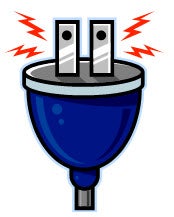According to the U.S. Consumer Product Safety Commission (CPSC), approximately 40,000 residential fires claim more than 350 lives annually. Electrical fires are most often attributed to problems with electric cords and plugs, lamps and light fixtures, and switches and outlets.
Help protect yourself and your family from electricity-related injuries.
- Check your home electrical system for problems.
- Avoid adding extra plugs in attachments which could overload outlets or extension cords.
- Examine electrical cords to make sure they aren't frayed, damaged or placed under rugs or carpets.
- Use recommended wattage light bulbs in light fixtures and lamps.
- Consider installing ground fault circuit interrupters (GFCI) in areas that are exposed to water.
- One of the most important precautions you can take is to regularly test your smoke detectors and to replace smoke detector and carbon monoxide alarm batteries annually.
- Always follow appropriate safety precautions and manufacturer's instructions.
- Have a licensed, qualified heating technician service your furnace or heating system.
- Change heating system filters to keep air passing through.
- Don't use electrical appliances around wet areas like bathtubs or sinks.
- Dry your hands before using electrical appliances.
- Keep electric heaters on level surfaces and 6-8 feet from furniture, curtains, and drapes.


